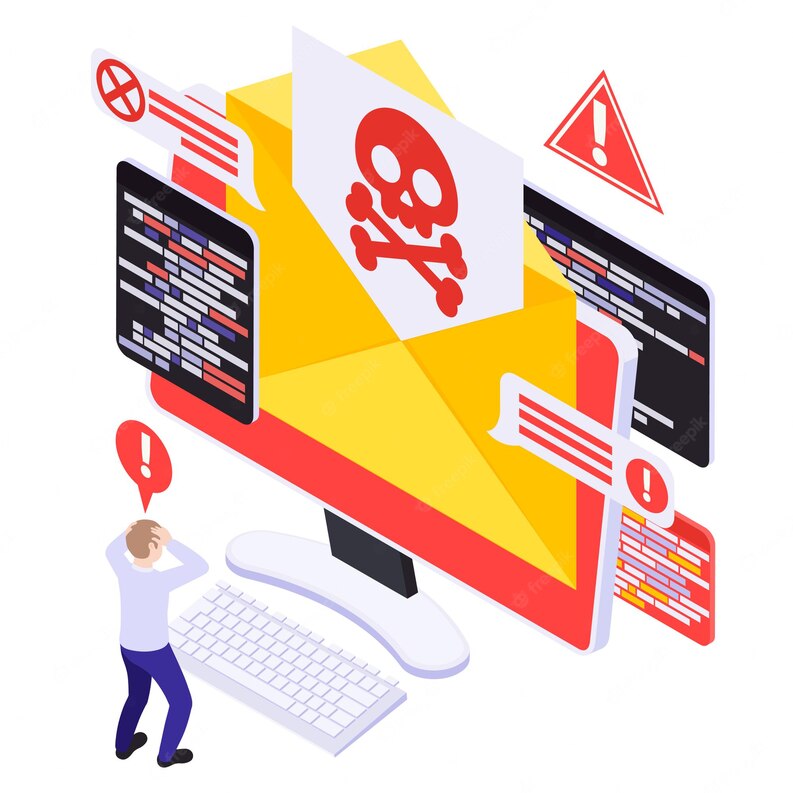Introduction: Ransomware Crisis
In recent times, the health care sector has become the target of a severe Ransomware Crisis that is wreaking havoc across three states. Ransomware attacks involve malicious hackers gaining unauthorized access to healthcare systems and encrypting critical data, demanding hefty ransoms for its release. This article delves into the escalating crisis, the adverse effects it has on health care, and explores potential solutions to safeguard against such attacks.
The Ransomware Outbreak in Health Care
The Ransomware Crisis has emerged as a significant threat to the healthcare industry due to its lucrative nature for cybercriminals. In the past, the primary focus of ransomware attacks was on financial institutions and large corporations. However, with the increased digitization of health care systems and the sensitive nature of patient data, hackers have shifted their attention to the healthcare sector.
Ransomware attacks in health care can be catastrophic. Hospitals and medical facilities rely heavily on electronic health records (EHRs) to provide timely and accurate patient care. When these systems are compromised, patient data, medical histories, and treatment plans become inaccessible, leading to potentially life-threatening situations.

Health Care Disruptions Across Three States
The Ransomware Crisis has recently caused widespread disruptions in three states: State A, State B, and State C. In State A, a prominent hospital chain fell victim to a ransomware attack, rendering their entire network paralyzed for days. The hospital was forced to revert to manual processes, leading to delays in patient care and postponed medical procedures.
In State B, a rural health clinic faced a similar fate when its EHR system was encrypted by hackers. The clinic struggled to pay the exorbitant ransom demanded, resulting in the loss of vital patient data. This incident highlighted the urgent need for small healthcare facilities to strengthen their cybersecurity measures.
Meanwhile, in State C, a leading pharmaceutical company experienced a ransomware attack that impacted its research and development efforts. Valuable data related to drug trials and medical advancements were at risk, posing a significant setback to the healthcare industry’s progress.
Mitigating the Ransomware Threat
Addressing the Ransomware Crisis in the healthcare sector requires a multi-faceted approach. The first step is to enhance cybersecurity measures across all healthcare institutions. This includes regular software updates, robust firewalls, and implementing multi-factor authentication for accessing sensitive data.
Additionally, educating healthcare staff about the risks of phishing emails and suspicious links can prevent unauthorized access to the network. Regular training sessions on cybersecurity best practices should be conducted to ensure everyone is vigilant against potential threats.
Furthermore, creating data backups and storing them offline can prove to be a game-changer during a ransomware attack. If critical data is lost due to encryption, having secure backups can help restore operations without yielding to the attackers’ demands.
Collaboration between healthcare organizations and cybersecurity experts is also crucial. By sharing information about recent threats and attacks, the industry can collectively strengthen its defense against ransomware.
Conclusion
The Ransomware Crisis is an ongoing menace that poses a severe threat to health care systems. With the healthcare industry increasingly relying on digital infrastructure, it is vital to stay vigilant and take proactive measures to safeguard patient data and the continuity of medical services.
By investing in robust cybersecurity practices, conducting regular staff training, and fostering collaboration among healthcare institutions, the industry can bolster its defenses against ransomware attacks. With concerted efforts and proactive strategies, the healthcare sector can mitigate the Ransomware Crisis and continue providing quality care to patients without disruptions.










